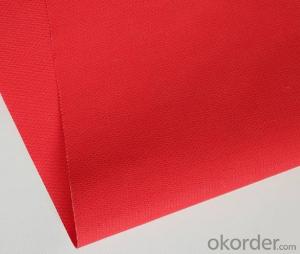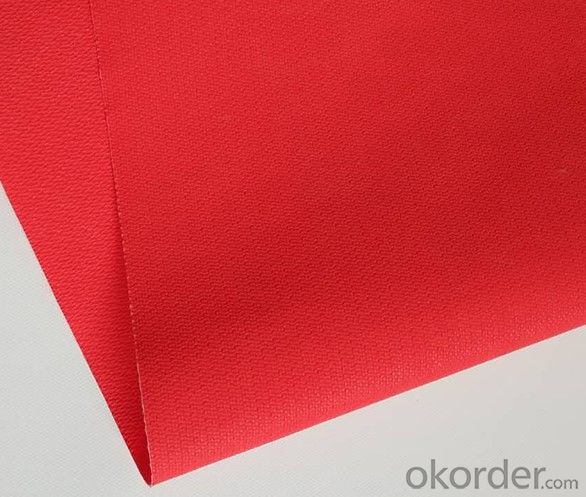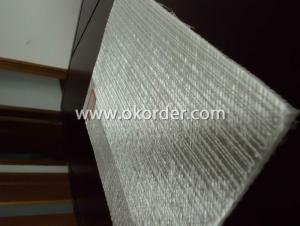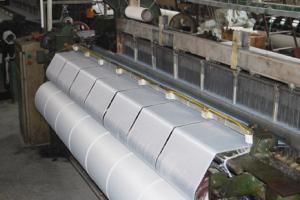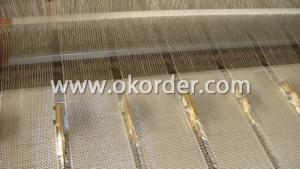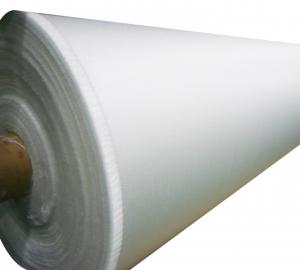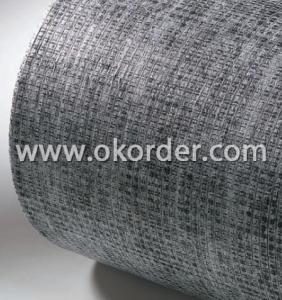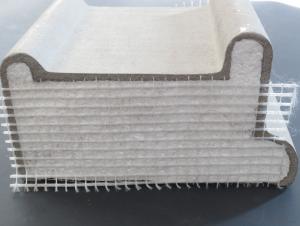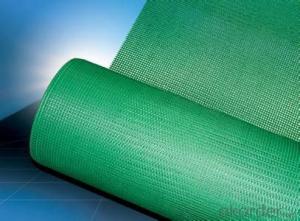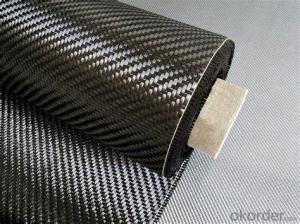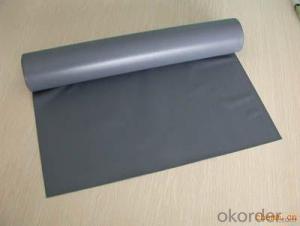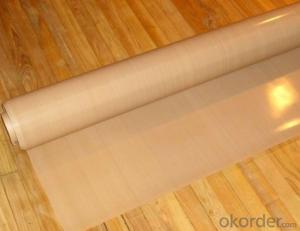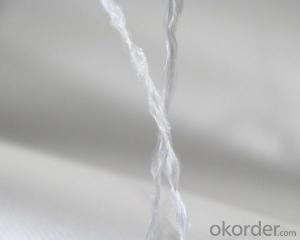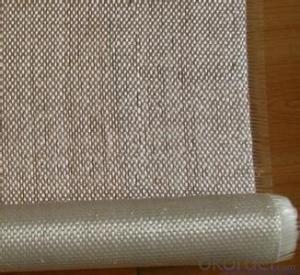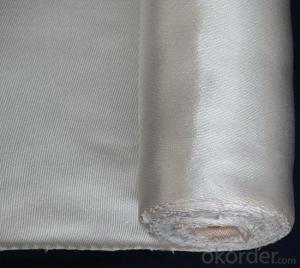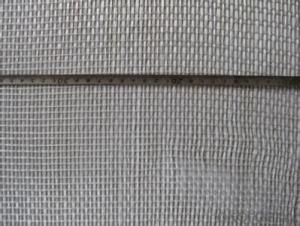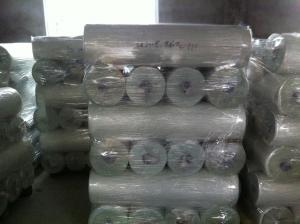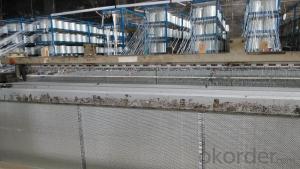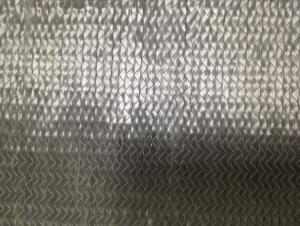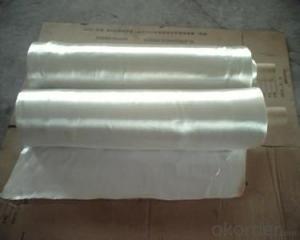Fiberglass Fabrics - High Temperature Resistant Acrylic Coated Fiberglass Fabric
- Loading Port:
- Ningbo
- Payment Terms:
- TT OR LC
- Min Order Qty:
- 500 m²
- Supply Capability:
- 300000 m²/month
OKorder Service Pledge
OKorder Financial Service
You Might Also Like
Description: The acrylic coated glass fiber cloth overcomes the shortcomings of glass fiber cloth that is not wear-resistant, itchy, and easy to loose yarn after cutting, so that our fire resistant cloth als and performs processing on the glass fiber cloth. It has better wear resistance, easy processing and aesthetic properties. Acrylic coated cloth can withstand higher operating temperatures. Acrylic texture stabilizer with high quality is flame-retardant, low-smoke, temperature resistance of 550 C, feels moderately soft and hard, and has a reasonable cost. Therefore, this coated fabric can be made into welding blanket, insulation covers, fire blanket, fire curtain, fireproof cloth for fire protection. In high temperature operations such as heat preservation, welding protection, fire protection, steel, shipbuilding industry, etc.
Features: Fireproof, Abrasion Resistance, Corrosion Resistance
Application: Fire Blanket, Welding Blanket, Insulation Blanket, Fire Curtain, Welding Curtain, Smoke Curtain, Fire Doors
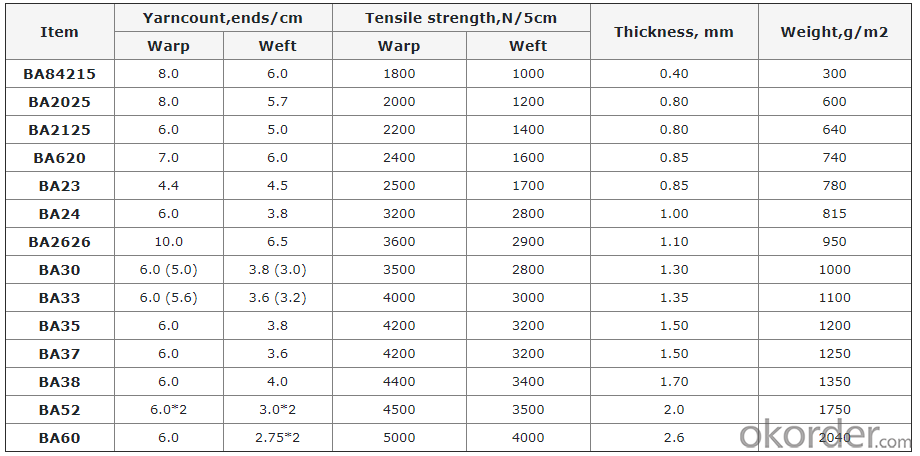
UNIT: square meter
MOQ: 500 square meters
Weight: 140gsm-3000gsm or customized
Width: 1m-2m or customized
Yarn Type: E-glass
Standing temperature: up to 550℃
Product name: Acrylic coated fiberglass fabric
Coating/Finish/Surface Treatment: Acrylic coated
Roll length: 50 meter or customized
Color: Yellow,Black,White,Brown,Blue,Orange,Gray,Salmon,Red or customized
Weave Type: plain woven
Alkali content: alkali free
Processing service: cutting
Material: fiberglass fabric, Acrylic
Thickness: 0.1mm to 3mm or customized
Size: can be customized
Supply ability: 300000 meters per month
Packaging: Acrylic coated fiberglass fabric rolls covered with film packed in cartons loaded on pallets or according to customers' requirements.
Lead time: 7-30 days
- Q: Can fiberglass fabric be used for reinforcement in pipes and tanks?
- Yes, fiberglass fabric can be used for reinforcement in pipes and tanks. Fiberglass is a strong and durable material that is resistant to corrosion, making it an ideal choice for reinforcing pipes and tanks that may be exposed to harsh chemicals or extreme temperatures. The fabric can be applied to the inner or outer surface of the pipe or tank, providing added strength and stability. Additionally, fiberglass fabric is lightweight and flexible, allowing it to conform to the shape of the pipes or tanks, ensuring a secure and effective reinforcement.
- Q: Can fiberglass fabric be used for masks?
- Yes, fiberglass fabric can be used for masks. Fiberglass fabric is known for its high strength and durability, making it an ideal material for creating protective masks. It is commonly used in industries such as construction, automotive, and aerospace for its ability to withstand high temperatures and provide insulation. When used for masks, fiberglass fabric can provide a strong barrier against particles, dust, and other airborne contaminants. However, it is important to note that fiberglass can be irritating to the skin and respiratory system if not properly handled. Therefore, it is crucial to ensure that the fabric is properly sealed and coated to prevent any contact with the skin or inhalation of fibers.
- Q: Are fiberglass fabrics resistant to corrosion from chemicals?
- Yes, fiberglass fabrics are generally resistant to corrosion from chemicals. The unique properties of fiberglass, such as high chemical resistance and inertness, make it an ideal material for applications where exposure to harsh chemicals is expected. Fiberglass fabrics are commonly used in industries such as chemical processing, oil and gas, and wastewater treatment, where they are exposed to a wide range of corrosive chemicals. The corrosion resistance of fiberglass fabrics can be attributed to the fact that they are made from glass fibers that are highly resistant to chemical attack. Additionally, fiberglass fabrics can be coated with various protective coatings to enhance their chemical resistance even further. However, it is important to note that the specific chemical resistance of fiberglass fabrics may vary depending on the type and concentration of the chemical. Therefore, it is recommended to consult the manufacturer or supplier for detailed information on the chemical resistance of fiberglass fabrics in specific applications.
- Q: Can fiberglass fabric be used for making tents?
- Yes, fiberglass fabric can be used for making tents. Fiberglass fabric is a popular choice for tent construction due to its durability, strength, and resistance to wear and tear. It is lightweight, yet provides excellent protection against elements such as wind, rain, and UV rays. The fiberglass fabric is also fire-resistant and can maintain its structural integrity in extreme temperatures. Additionally, it is easy to handle and can be easily sewn or welded to create tent panels. With all these qualities, fiberglass fabric is a reliable material for making high-quality, long-lasting tents.
- Q: Are fiberglass fabrics resistant to UV degradation when exposed to outdoor sunlight?
- Yes, fiberglass fabrics are generally resistant to UV degradation when exposed to outdoor sunlight. The fiberglass material is inherently UV resistant and does not easily degrade or deteriorate when exposed to sunlight. This makes fiberglass fabrics a reliable choice for outdoor applications where UV exposure is a concern.
- Q: Can fiberglass fabric be used for mold making?
- Yes, fiberglass fabric can be used for mold making. Fiberglass fabric is a versatile material that is commonly used in various industries, including mold making. It is known for its strength, durability, and resistance to heat and chemicals. To use fiberglass fabric for mold making, it is typically laminated with a resin, such as polyester or epoxy, to create a rigid and sturdy mold. The fabric is first saturated with the resin and then applied to the desired shape or object. Once the resin cures and hardens, it forms a solid mold that can be used to create replicas or castings. Fiberglass fabric molds have several advantages. They are lightweight, making them easy to handle and transport. They also have excellent dimensional stability, meaning they maintain their shape well over time. Additionally, fiberglass molds can be used for a wide range of materials, including concrete, plaster, and various resins. It is important to note that when working with fiberglass fabric and resin, proper safety precautions should be taken. This includes wearing protective clothing, gloves, and a respirator to avoid inhaling any harmful fumes. Additionally, ensuring proper ventilation in the workspace is crucial. In summary, fiberglass fabric can be effectively used for mold making due to its strength, durability, and resistance to heat and chemicals. When used properly, fiberglass fabric molds can produce high-quality replicas and castings for various applications.
- Q: What are the high temperature resistant fiberglass fabrics made in China?
- Before, domestic and foreign countries have a big gap. Later, with the upgrading of domestic technology, some large glass fiber enterprise production products and foreign countries have been comparable.
- Q: What are the different fiberglass fabric finishes for fire resistance?
- Some common fiberglass fabric finishes for fire resistance include flame retardant, fire retardant, and heat resistant finishes. These finishes are designed to enhance the fabric's ability to resist ignition and slow down the spread of flames in case of a fire.
- Q: Can fiberglass fabric be used for making stage curtains?
- Yes, fiberglass fabric can be used for making stage curtains. Fiberglass fabric is a versatile material that offers several benefits for stage curtains. Firstly, it is lightweight and durable, making it easy to handle and resistant to wear and tear. This is important for stage curtains as they need to withstand frequent opening and closing during performances. Additionally, fiberglass fabric is flame retardant, ensuring the safety of the stage and performers. It also provides excellent acoustic properties, helping to absorb sound and improve the acoustics in the theater. Moreover, fiberglass fabric is available in a variety of colors and can be easily painted or printed on, allowing for customization and artistic expression. Overall, fiberglass fabric is a suitable choice for making stage curtains due to its durability, fire resistance, acoustic properties, and aesthetic flexibility.
- Q: How is fiberglass fabric used in the production of electrical cables?
- Due to its exceptional insulation properties, fiberglass fabric is commonly incorporated in the manufacturing process of electrical cables. The fabric is composed of interwoven glass fibers, which possess remarkable electrical resistance. When utilized in electrical cables, fiberglass fabric functions as a protective insulating layer, shielding the conductive wires against adverse external elements such as moisture, heat, and physical harm. Throughout the production procedure of electrical cables, it is customary to saturate the fiberglass fabric with a resin or polymer. This infusion further heightens its insulation capabilities and guarantees its stability and endurance. Subsequently, the impregnated fabric is enveloped around the conductive wires, forming a safeguarding layer that aids in preventing electrical leakage and short circuits. Furthermore, fiberglass fabric exhibits exceptional resistance to fire, rendering it an optimal material for electrical cables. In the event of a fire outbreak, the fabric acts as a barricade, effectively impeding the propagation of flames along the cable, thereby diminishing the likelihood of additional harm or accidents. In conjunction with its insulation and fire-resistant properties, fiberglass fabric also imparts mechanical strength and flexibility to electrical cables. Its interlaced structure fortifies the cable's tensile strength, enabling it to endure tension and bending without succumbing to breakage or loss of functionality. All in all, the utilization of fiberglass fabric in the production of electrical cables ensures the dependable and secure transmission of electrical currents while concurrently safeguarding the cables and their surrounding environment from potential hazards.
Send your message to us
Fiberglass Fabrics - High Temperature Resistant Acrylic Coated Fiberglass Fabric
- Loading Port:
- Ningbo
- Payment Terms:
- TT OR LC
- Min Order Qty:
- 500 m²
- Supply Capability:
- 300000 m²/month
OKorder Service Pledge
OKorder Financial Service
Similar products
Hot products
Hot Searches
Related keywords
